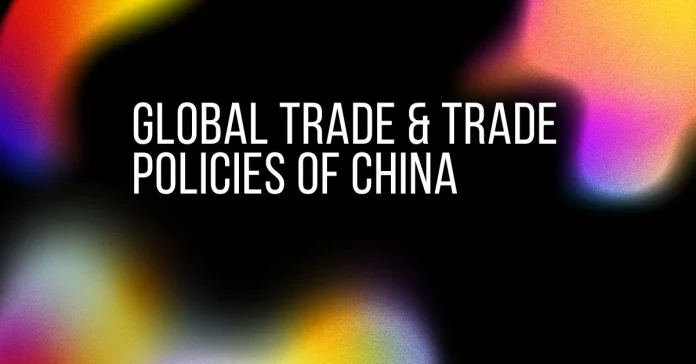CSS ESSAY 2022
Thesis Statement:
China’s trade policies have a significant impact on the global economy, and its Belt and Road Initiative and “Made in China 2025” plan demonstrate China’s ambition to become a dominant player in international trade. However, these policies have also been subject to criticism, with concerns about unfair trade practices, intellectual property theft, and human rights violations.
Introduction:
Global trade refers to the exchange of goods and services across international borders, and trade policies are the regulations and agreements that govern this exchange. China is a major player in the global economy, and its trade policies have significant impacts on trade relations with other countries.
Historical Overview of China’s Trade Policies:
Before the economic reforms of the late 1970s, China’s trade policies were heavily influenced by its socialist ideology. The government controlled all foreign trade, and imports and exports were tightly regulated. However, as China transitioned to a market-oriented economy, it began to open up to international trade. In 2001, China joined the World Trade Organization (WTO), which helped to further liberalize its trade policies and integrate it into the global economy.
China’s Current Trade Policies:
Today, China’s trade policies are characterized by two major initiatives: the Belt and Road Initiative and “Made in China 2025” plan. The Belt and Road Initiative is a massive infrastructure project that seeks to connect China with countries across Asia, Europe, and Africa through a network of railways, highways, ports, and other transportation infrastructure. The “Made in China 2025” plan is a government-led initiative that aims to transform China into a high-tech manufacturing powerhouse by investing in emerging technologies such as artificial intelligence and robotics.
Impacts of China’s Trade Policies:
China’s trade policies have had significant impacts on the global economy. On the one hand, they have helped to fuel China’s rapid economic growth, and have created new opportunities for trade and investment with other countries. On the other hand, they have also had negative impacts on other countries, particularly in the areas of employment and intellectual property theft.
Economic impacts:
China’s trade policies have led to significant growth in its economy, which has in turn fueled demand for imports from other countries. China is now the world’s largest trading nation, and its imports and exports account for a significant portion of global trade. However, some critics argue that China’s trade policies have led to unfair competition with other countries, particularly in the areas of currency manipulation and government subsidies for domestic industries.
Political impacts:
China’s growing economic power has also had political impacts, particularly in its relationships with other countries. For example, China’s investments in developing countries through the Belt and Road Initiative have been criticized as a form of “debt-trap diplomacy,” in which China offers loans to countries in exchange for control over their infrastructure and resources. This has led to concerns about China’s growing geopolitical influence, particularly in regions such as Africa and Southeast Asia.
Social impacts:
China’s trade policies have also had social impacts, particularly on employment. China’s growing exports have contributed to job losses in other countries, particularly in industries such as manufacturing. In addition, concerns have been raised about the working conditions in some Chinese factories, particularly in the areas of worker safety and wage levels.
Criticisms of China’s Trade Policies:
Despite the benefits of China’s trade policies, they have also been subject to criticism. One major criticism is that China engages in unfair trade practices, such as dumping goods on foreign markets at below-market prices. Another concern is the theft of intellectual property by Chinese companies, which has been a major source of tension between China and other countries. Finally, China’s human rights record has also been subject to criticism, particularly in the areas of freedom of speech and assembly.
Conclusion:
China’s trade policies have had significant impacts on the global economy, and its Belt and Road Initiative and “Made in China 2025” plan demonstrate China’s ambition to become a dominant player in international trade. However, these policies have also been subject to criticism, with concerns about unfair trade practices, intellectual property theft, and human rights violations. As China continues to grow in economic and political power, its trade policies will continue to shape the future of global trade, and it will be important for other countries to engage with China in a constructive and mutually beneficial way.
















